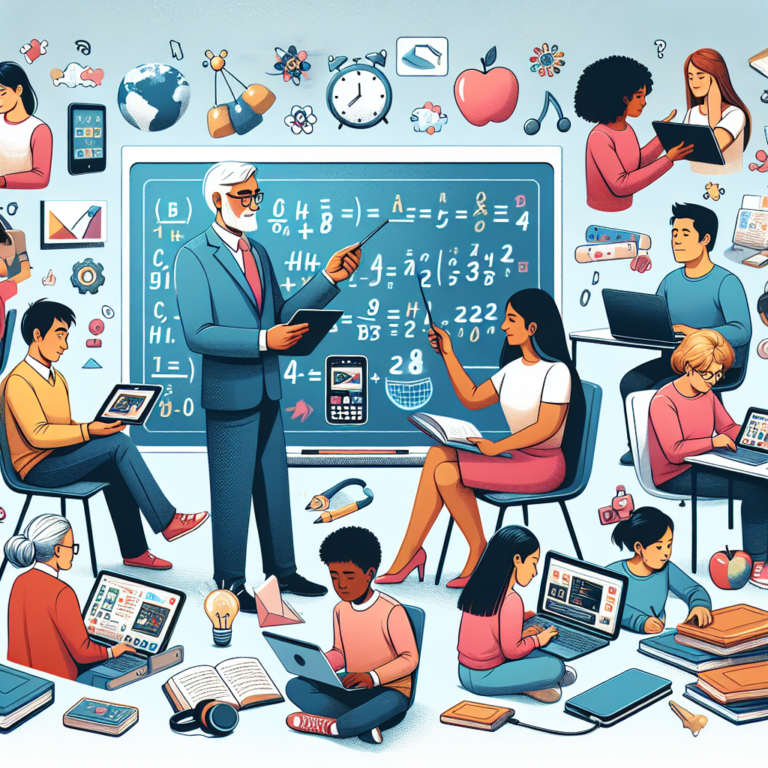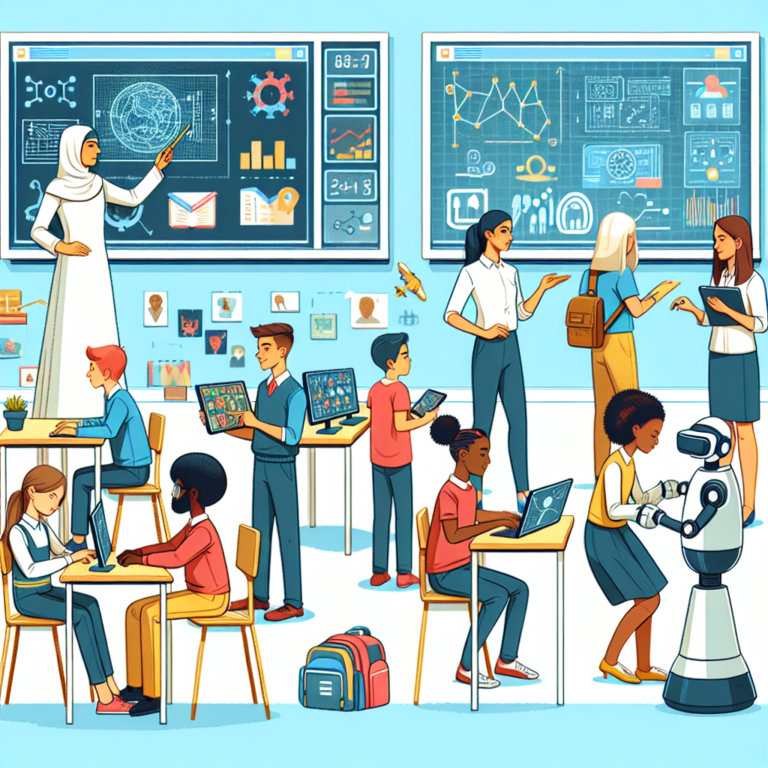Exploring the Latest EdTech Literature
The intersection of education and technology is a dynamic field. It’s constantly evolving, driven by innovation and research.
EdTech literature serves as a critical resource in this landscape. It provides insights into the latest trends, discussions, and developments.
From digital learning to tech education, the scope is vast. It covers a range of topics, each with its own unique implications for the future of education.
This article aims to explore the latest in EdTech literature. It will delve into recent publications, notable authors, and emerging themes.
Whether you’re an educator, researcher, or simply interested in EdTech, this exploration will offer valuable insights. Stay tuned as we navigate the fascinating world of EdTech literature.
The Evolution of EdTech Literature
EdTech literature has come a long way. It has evolved from simple discussions about computer-based learning to complex analyses of AI in education.
In the early days, the focus was on the potential of technology in classrooms. The literature was filled with optimism about the transformative power of tech in education.
As technology advanced, so did the literature. It began to delve into the complexities of digital learning, exploring themes like online education, data analytics, and virtual reality.
Today, EdTech literature is a rich tapestry of insights. It covers a wide array of topics, reflecting the diverse ways technology is reshaping education.
Defining EdTech Literature in the Digital Age
EdTech literature in the digital age is a broad field. It encompasses a wide range of topics, from the use of technology in classrooms to the impact of AI on learning.
This literature includes academic research, case studies, and thought leadership pieces. It also covers reviews of educational technology products and discussions on policy and regulation.
In essence, EdTech literature is a reflection of the ongoing dialogue about the role of technology in education. It captures the challenges, opportunities, and trends shaping the future of learning.
Key Themes in Contemporary EdTech Publications
Contemporary EdTech literature is diverse and dynamic. It reflects the evolving landscape of education and technology.
One key theme is the impact of digital learning on traditional education. This includes discussions on online learning platforms, MOOCs, and virtual classrooms.
Another prevalent theme is the role of AI and machine learning in education. This covers topics like adaptive learning systems, AI tutors, and data analytics in education.
The literature also delves into the ethical considerations of using technology in education. This includes discussions on data privacy, digital equity, and the digital divide.
Here are some of the key themes in contemporary EdTech literature:
- Digital learning and online education
- AI and machine learning in education
- Ethical considerations in EdTech
- The role of technology in post-pandemic education
- The impact of social media and networking on education
Notable EdTech Authors and Thought Leaders
The EdTech literature landscape is shaped by numerous authors and thought leaders. These individuals contribute significantly to the discourse on technology in education.
One such author is Thomas C. Murray, known for his work on future-ready schools. His writings focus on the intersection of technology, pedagogy, and school leadership.
Another influential figure is Audrey Watters, a writer and independent scholar. She critically examines the role of technology in education, often challenging prevailing narratives.
These authors, among others, provide valuable insights into the evolving field of EdTech.
The Impact of Technology on Post-Pandemic Education
The COVID-19 pandemic has significantly impacted education worldwide. It has necessitated a shift towards digital learning, a theme prevalent in recent EdTech literature.
This shift has highlighted the importance of technology in ensuring continuity of education. It has also underscored the need for digital equity, a topic extensively discussed in EdTech publications.
The pandemic has also accelerated the adoption of EdTech solutions. This has led to a surge in literature exploring the effectiveness of these solutions.
In conclusion, the post-pandemic era has brought about a transformation in education. This transformation is well-documented in the latest EdTech literature.
Trends and Innovations in Digital Learning
Digital learning is a central theme in contemporary EdTech literature. It encompasses a wide range of technologies and methodologies, from online courses to virtual reality.
One trend that has gained prominence is the use of artificial intelligence (AI) in education. AI has the potential to personalize learning, a topic frequently discussed in recent publications.
Another trend is the rise of mobile learning. With the ubiquity of smartphones, learning can happen anytime, anywhere. This flexibility is a key advantage of digital learning.
Yet another trend is the use of gamification to enhance student engagement. The integration of game elements into learning has been shown to improve motivation and retention.
In conclusion, digital learning is constantly evolving, driven by technological advancements. This evolution is well-documented in the latest EdTech literature.
- AI in education
- Mobile learning
- Gamification in learning
Critical Reviews of Seminal EdTech Works
EdTech literature is not just about new trends and innovations. It also involves critical analysis of seminal works in the field. These reviews provide valuable insights into the strengths and weaknesses of influential educational technology books.
For instance, some reviews may focus on the practical applications of the theories proposed in these works. Others may critique the methodologies used, or the relevance of the findings in today’s rapidly changing educational landscape.
In essence, critical reviews in EdTech literature serve to foster a deeper understanding of the field. They stimulate intellectual discourse and pave the way for future research and innovation.
The Intersection of EdTech with Other Academic Disciplines
EdTech literature does not exist in a vacuum. It intersects with various other academic disciplines, creating a rich tapestry of knowledge and insights.
For instance, psychology plays a significant role in understanding how students interact with technology. It helps in designing more effective digital learning environments.
Similarly, neuroscience contributes to our understanding of how technology can enhance cognitive processes. It aids in the development of tech tools that cater to diverse learning styles.
In essence, the intersection of EdTech with other disciplines enriches the field. It fosters a more holistic understanding of the role of technology in education.
The Future of EdTech Literature Amidst Technological Advancements
The future of EdTech literature is intrinsically tied to the trajectory of technological advancements. As technology evolves, so does the discourse in EdTech literature.
Artificial intelligence, machine learning, and blockchain are just a few of the technologies shaping the future of education. These advancements are likely to redefine the themes and topics covered in EdTech literature.
In conclusion, the future of EdTech literature promises to be as dynamic and transformative as the technology it explores. It will continue to be a vital resource for understanding the evolving landscape of education in the digital age.











